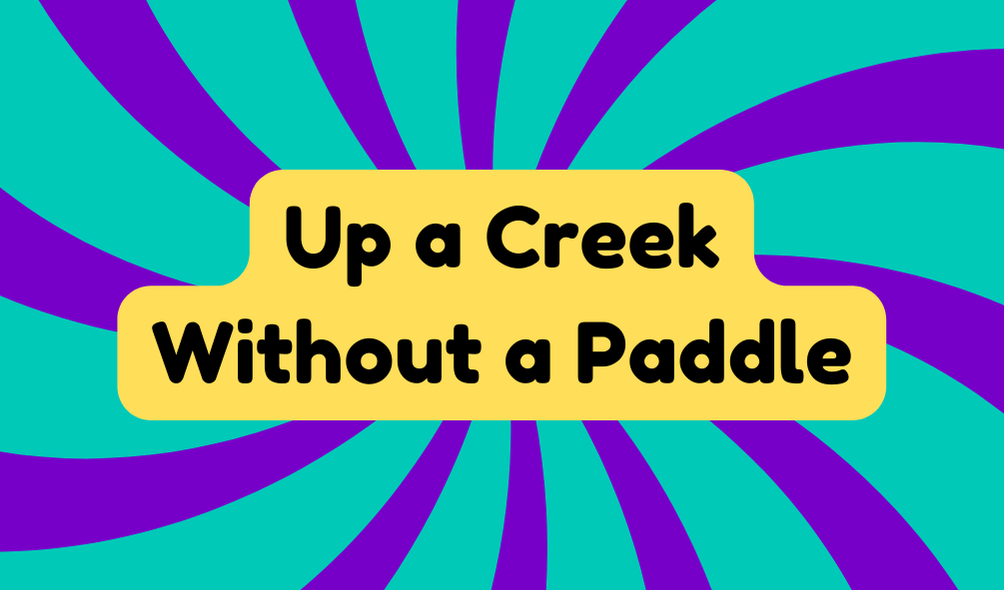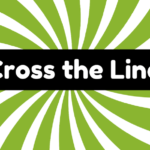When you say you're up a creek without a paddle, you're expressing that you're in a tough situation without a way out. This idiom has nautical roots, originating from sailors who found themselves stuck in Haslar Creek, highlighting the urgency of their predicament. You might relate it to losing a job without savings or forgetting to refuel on a road trip. In today's world, this phrase remains relevant as many face financial instability and work-life balance challenges. Recognizing this saying can help you articulate feelings of being overwhelmed and trapped, so keep reading to uncover its deeper meanings and contexts.
Synonyms
You might often hear phrases like "in hot water" or "in a bind" as synonyms for being "up a creek without a paddle." These expressions capture the essence of being in trouble or facing a challenging situation. When you find yourself in a dire strait, recognizing these alternatives can sharpen your communication. Here are three synonyms that aptly convey a similar sentiment:
- In deep water – Emphasizes the gravity of your predicament.
- A lost cause – Suggests a situation that's almost hopeless.
- In a tight spot – Depicts a challenging or uncomfortable situation.
Using these terms can reveal the inner complexity of difficult situations, providing clarity when discussing issues that may seem overwhelming or insurmountable.
Example of Sentences
Numerous scenarios can illustrate the phrase "up a creek without a paddle," showcasing its relevance in everyday life. You might find yourself in these situations:
- You lose your job without any savings—suddenly, you're up a creek without a paddle.
- Forgetting to refill your gas tank on a road trip leaves you stranded, realizing the gravity of your oversight.
- Poor financial planning leads to mounting debts, and now, you're stuck in a serious predicament.
Origin
The phrase "up a creek without a paddle" has a fascinating origin that reflects its nautical roots. You might not realize it, but this idiom likely traces back to Haslar Creek in Portsmouth harbor. Sailors, often confined to prevent desertion, found themselves in dire straits with no escape. This phrase history highlights a time when the absence of a paddle symbolized imminent trouble on the water. The idiom emerged from real-life predicaments, effectively using nautical terminology to convey a struggle for survival. Notably, the first recorded use appeared in a 1941 radio play, reinforcing its enduring appeal. So, the next time you hear this phrase, remember its rich past steeped in maritime challenges and human resilience.
Collocations
When you find yourself in a conversation about difficult situations, the phrase "up a creek without a paddle" often pops up, conveying a sense of urgency and helplessness. Understanding collocations with "creek" can help you communicate effectively. Here are three common phrases:
- "down the creek" – often implies you're in trouble, much like being "up a creek" does.
- "up the creek" – emphasizes the situation without specifying the absence of a paddle.
- "in a creek" – typically used to denote being in a more generic challenging situation.
These collocations enrich your vocabulary, yet they also require careful usage. Misunderstanding them can lead to diluted meaning in your conversations, a reality you should consider before using them lightly.
How to Use in Everyday Language
How can you express feeling overwhelmed or in a tight spot during a conversation? In everyday situations, you might find yourself up a creek without a paddle when juggling too many responsibilities or facing unexpected obstacles. It's a vivid way to communicate your frustrations and challenges. Instead of sugarcoating your feelings, using this phrase helps you articulate your struggle to overcome challenges, be it at work, home, or school. When someone asks about your day, saying you're up a creek conveys urgency and honesty. This expression adds a relatable flair to your dialogue, making it easier to connect with others. It's a powerful reminder that everyone faces tough spots, and sharing yours can invite support and understanding.
Why Is It Still Relevant Today?
Feeling overwhelmed is something we can all relate to, and that's why phrases like "up a creek without a paddle" remain relevant today. In a world faced with modern dilemmas, such as financial uncertainty and work-life balance, this saying captures the essence of feeling stuck and out of control. Popular culture reflects this struggle, often depicting characters who find themselves in impossible situations without clear solutions. This phrase resonates now more than ever, as people navigate complex choices and unexpected challenges. It serves as a reminder that everyone, at some point, faces obstacles beyond their control. Embracing this connection can foster empathy and drive innovation, helping you find new ways to tackle your own "creek" moments effectively.







